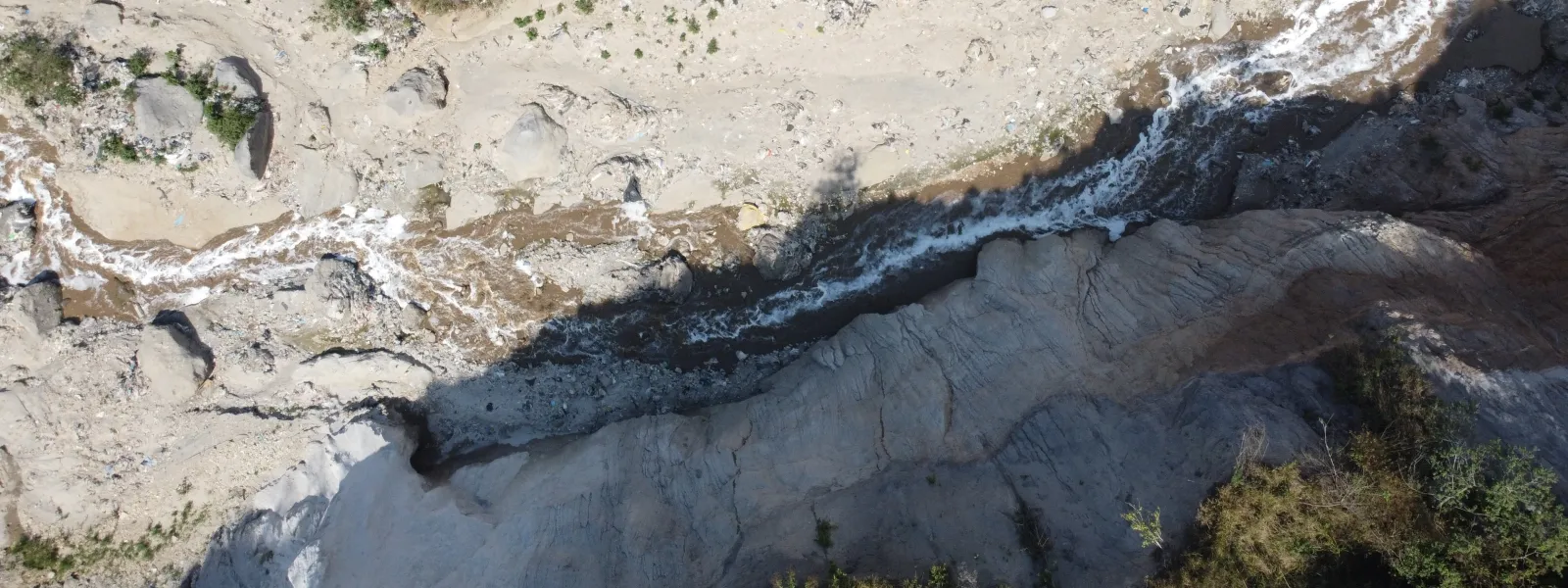
Comunidad maya guatemalteca obtiene respaldo judicial para frenar contaminación transfronteriza
Javier Oviedo/AIDA
Un tribunal de amparo ordenó a la municipalidad de Chinautla atender la grave crisis ambiental que afecta a la comunidad maya poqomam. El fallo sienta un precedente para la protección del derecho a un ambiente sano de las comunidades que habitan en la cuenca del río Motagua, cuya contaminación alcanza al Mar Caribe y amenaza al Arrecife Mesoamericano.
Ciudad de Guatemala. La comunidad del pueblo maya poqomam de la aldea de Santa Cruz Chinautla obtuvo el respaldo de la justicia guatemalteca con un fallo judicial que ordena a la municipalidad de Chinautla responder de manera efectiva a sus peticiones para frenar la contaminación de sus ríos y suelos, provocada por el manejo inadecuado de desechos sólidos y la proliferación de vertederos ilegales.
El fallo representa un paso decisivo para la protección del derecho a un ambiente sano en Guatemala y sienta un precedente que podría beneficiar a las comunidades que habitan en la cuenca del río Motagua, una de las más importantes del país, cuya contaminación llega al Mar Caribe y amenaza al ecosistema marino del Arrecife Mesoamericano.
Santa Cruz Chinautla se ubica en las riberas de los ríos Chinautla, Tzaljá y Las Vacas, este último un afluente directo del río Motagua, el más extenso de Guatemala, por lo que tiene un impacto directo en la salud de toda la cuenca y el equilibrio ecológico regional.
La sentencia responde a la petición de amparo presentada por la comunidad en octubre de 2024 y en ella el tribunal establece obligaciones que el Concejo Municipal de Chinautla debe cumplir como resultado directo del fallo judicial:
- Asumir la responsabilidad constitucional y legal de gestionar de forma adecuada los recursos naturales y mitigar la contaminación ambiental, en cumplimiento de las obligaciones de prevención, regulación, prestación de servicios públicos, supervisión y fiscalización, propias de su rol como municipalidad.
- Resolver las peticiones presentadas a través del representante de las Autoridades Ancestrales de Santa Cruz Chinautla relacionadas con el cierre técnico de vertederos ilegales, la restauración de los ecosistemas, medidas de gestión de los desechos sólidos y acciones para detener la contaminación de los ríos proveniente del área metropolitana en Guatemala. Las respuestas deben ser adecuadas, oportunas y proporcionales, tendientes a resolver la problemática de manera efectiva, las cuales deben ser realizables a corto, mediano y largo plazo.
- Atender las problemáticas de contaminación denunciadas por la comunidad, a través de un estudio minucioso, consensuado, profesional, técnico, científico y bien fundamentado.
- Planificar y tomar decisiones para la gestión adecuada de los recursos naturales, garantizando los derechos de acceso a la información y la participación de los habitantes locales, respetando la forma de organización propia de la comunidad maya poqomam de Santa Cruz Chinautla.
Si bien la sentencia no profundizó en los argumentos de fondo presentados por la comunidad y respaldados por organizaciones nacionales e internacionales, establece de forma clara la responsabilidad de la municipalidad en la atención y resolución de la problemática de contaminación denunciada.
AIDA dará seguimiento a la ejecución del fallo para asegurar el cumplimiento del derecho a un ambiente sano y promover condiciones ambientales, sociales y culturales dignas para la comunidad maya poqomam. En caso de que la municipalidad decida apelar la sentencia ante la la Corte de Constitucionalidad, la organización presentará los argumentos legales y científicos necesarios para garantizar la protección efectiva de los derechos de la comunidad.
Contacto de prensa:
Víctor Quintanilla, [email protected], +52 5570522017
